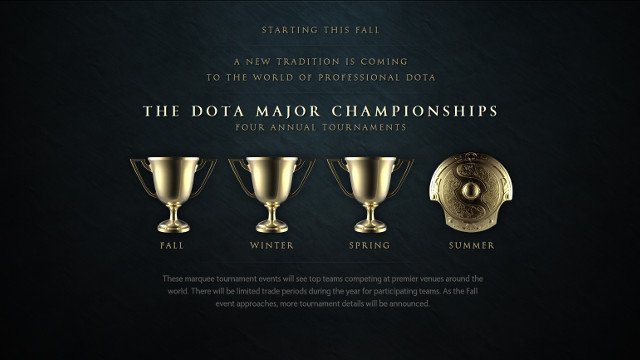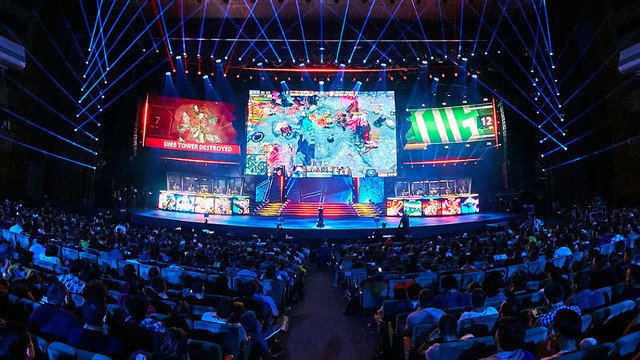Dota 2 has undergone quite the shift in the last few years as Valve tries to figure out exactly how to work the competitive scene for their cash-printing press popular MOBA. After announcing a four-tournament Major system in 2015, with a series of $3 million tournaments leading up to the International, it was full speed ahead. Not two years later, Valve announced today that it will be getting rid of that system in favor of a new, third-party-focused competitive season.
In the announcement, Valve writes “Instead of the previous Major system, we will be selecting many third-party tournaments to directly sponsor. Additionally, players competing in these tournaments will earn Qualifying Points which will be the sole factor in determining invites to The International 2018.”
Valve will look for third-party tournaments with at least a $500,000 prize pool, to which Valve will contribute an additional $500,000. These tournaments will be considered “majors.” Valve will also look for third-party tournaments with at least a $150,000 prize pool, to which Valve will contribute an additional $150,000. These tournaments will be considered “minors.”
The writing was on the wall for a change to the Majors, after the series went from three tournaments in 2015 (Manilla, Frankfurt and Shanghai) to two tournaments in 2016-17 (Boston and Kiev), not including The International, of course. For whatever reason, it was clear Valve wasn’t fully satisfied with the system as a whole, so we’ll see if this next experiment does the trick.

Valve’s previous Major system had caused some confusion and was scaled back before this change.
This new majors system does clear up a few issues affecting the Dota 2 eSports scene, to varying degrees. For one, it was unclear how invites worked exactly, and Valve appeared to do their best to keep it under wraps. People were able to figure it out for the previous Majors – the top four teams were automatically invited to the next one, for example, while the victors of many larger tournaments, Valve or third-party, were invited to The International.
There was also an issue with team rosters. Valve invites Dota 2 players – not teams – to the International, so, if a team changed up their roster after a designated roster change period, they would not be invited. The same thing happened with Evil Geniuses a few years ago, and with Wings Gaming just last year, each of whom were not given an invite after winning the previous International. Now, it appears that players will be able to work around that. Only the top 3 Qualifying Point earners will count toward the International Invites. So, as long as teams aren’t shuffling around their best players, they are free to make roster changes and still receive an invite.
While it’s much more clear what does and does not contribute to the International, a few things are left uncertain. We don’t yet know how many of these tournaments there are going to be, and we don’t know how this will affect tournaments that aren’t Valve official. Will teams want to compete in tournaments that don’t help them get Qualifying Points? We’ll have to find out. In the mean time, this represents the writing on the wall for the last few years and echos player requests during that same time period, and is likely to be met with near-universal praise.












